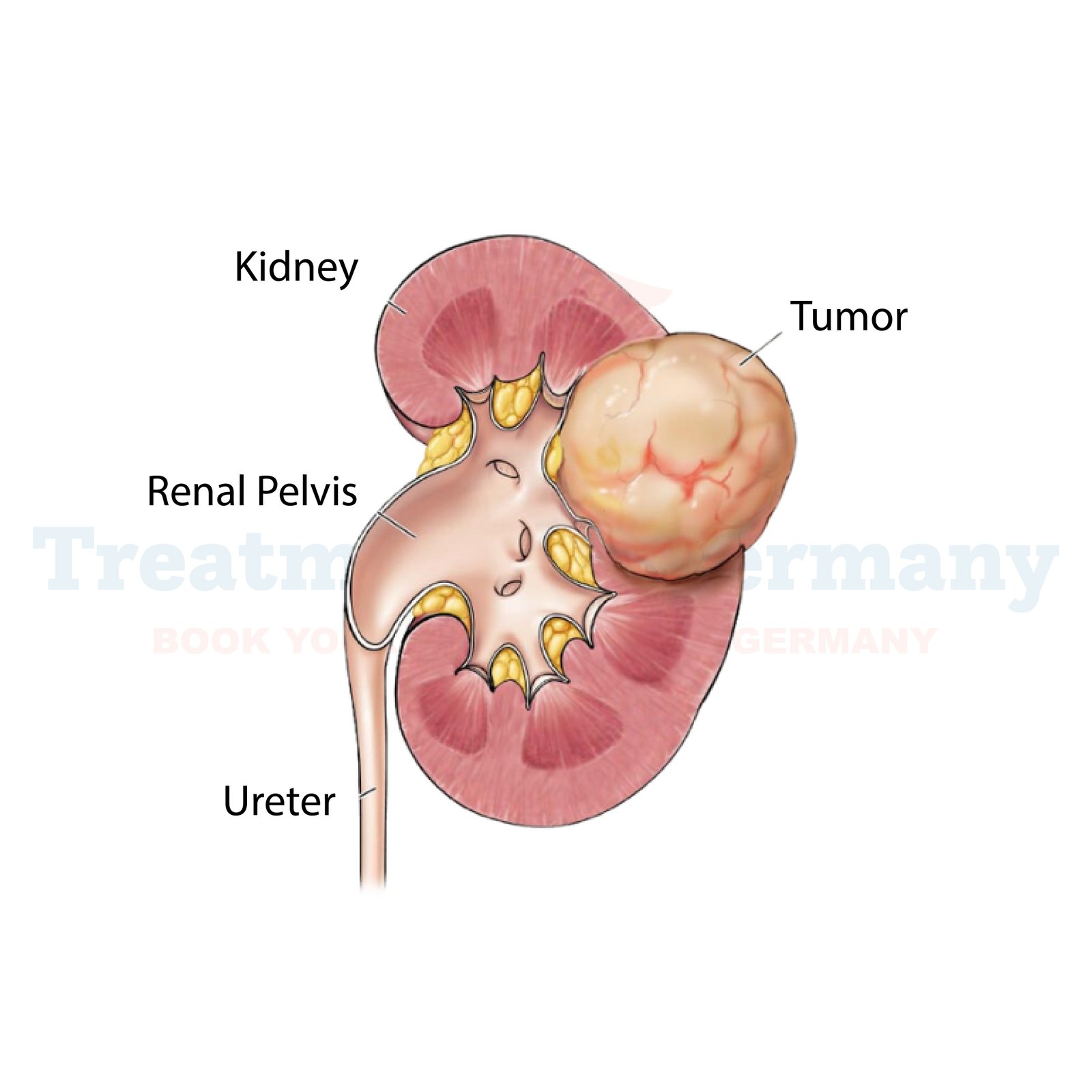One prevalent type of kidney cancer that develops in the renal tubules is renal cell carcinoma. Due to its pernicious nature and elusive symptomatology, RCC diagnosis is rarely possible at an early stage; thus, it requires comprehensive treatment. Due to well-developed medical technology, Germany is considered a significant center for RCC treatments because it provides the latest therapies and highly qualified care.
It grows inside the tubules of the kidney, small tubes that filter out and remove waste. Clear Cell Renal Cell Carcinoma (ccRCC) is the most common type, which is recognized under the microscope by its clear cells. Rarely does RCC spread to both kidneys, but disease usually begins in one.
RCC Subtypes
Symptoms and Signs of RCC
RCC often is not symptomatic in its early stages. Therefore, when people notice changes, it usually is already too late. Common signs and symptoms include:
Other similar conditions in RCC may include paraneoplastic syndromes. Sometimes, tumors may release substances that cause imbalances in normal hormones, and this indirectly causes symptoms such as hypertension or hypercalcemia.
Causes and Risk Factors of RCC
Although the etiology of RCC is not well known, there are some risk factors associated with a higher risk for the disease. Some of them include:
Advanced Diagnostic Techniques in Germany
Advanced diagnostic facilities are available in Germany that help to detect the tumor condition of RCC early and accurately. Usually, the following tests are preferred for diagnosis:
Staging of Renal Cell Carcinoma
Staging helps to determine how advanced the RCC is, so a treatment decision can be taken and a prognosis can be made. In Germany, clinics use the TNM, where T stands for 'tumor', N for 'lymph node', and M for metastasis, thus specifying the stage of cancer:
Treatment Options in Germany for RCC
All types of localized and metastatic RCC can be treated in Germany, with the best option being given to each patient.
Surgical Interventions for Localized RCC
Surgery is the first choice of treatment for localized RCC, which consists of cancerous tissue removal. These include:
Other options for patients who are not suitable for surgery include:
Treatment of Advanced and Metastatic RCC
When the RCC has spread outside the kidneys, the German medical centers provide pioneering treatments through immunotherapy and targeted therapies.
Radiation Therapy for RCC
Surgery might not be necessary, and radiation therapy can be administered as part of palliative care to control symptoms. Though it is not one of the most common treatments for RCC, radiation therapy addresses localized abnormal cells since the tumor is localized and therefore can shrink the size of the tumor or provide relief to it.
RCC Prognosis and Cure Potential
There is an early-stage RCC with a cure ensured for the patient, especially when the tumor is contained within the kidney. The patient is said to have excellent long-term survival with immediate surgical intervention. However, metastatic RCC presents a challenge, a cure may not be possible, though survival does depend on advanced therapies, with patients allowing them to live longer with the disease.
Can surgery be used to cure RCC?
Surgery is frequently a successful treatment for localized RCC, particularly when it is detected early. However, additional medicines are necessary for metastatic RCC.
Which of the following tests confirms RCC?
Most diagnosis of RCC is made through imaging studies such as CT scans and MRIs. Biopsies are hardly employed due to the likelihood of damage to the kidney.
Which of the following describes an RCC risk factor?
They include smoking, obesity, hypertension, chronic kidney disease, hepatitis C, and genetic diseases like VHL disease.
Are there any non-surgical treatments for RCC?
Yes, but some patients are eligible for cryotherapy or radiofrequency ablation for certain patients.
How does immunotherapy work for RCC?
Immunotherapy is your immune system's activation that helps locate and kill the cancer cells. Immunotherapy has very few to no serious side effects.
👉 Contact us for further information and receive a complimentary consultation.


.webp)
 (1).webp)

.webp)
 (1).webp)


.webp)
 (1).webp)

.webp)
 (1).webp)
